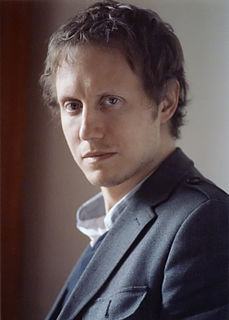A Quote by Johan Huizinga
If, then, this civilization is to be saved, if it is not to be submerged by centuries of barbarism, but to secure the treasures ofits inheritance on new and more stable foundations, there is indeed need for those now living fully to realize how far the decay has already progressed.
Related Quotes
Friedrich Engels once said: "Bourgeois society stands at the crossroads, either transition to socialism or regression into barbarism." What does "regression into barbarism" mean to our lofty European civilization? Until now, we have all probably read and repeated these words thoughtlessly, without suspecting their fearsome seriousness. A look around us at this moment shows what the regression of bourgeois society into barbarism means. This world war is a regression into barbarism. The triumph of imperialism leads to the annihilation of civilization.
We have progressed in a technological sense, but I'm not so sure whether we have progressed in a civilizational matter - the quality of the civilization has not improved. It's a civilization that's in love with technology but forgetting about the human side of it and the destructive tendency in human civilization has not been faced.
It was funny how the old practices always came around again. It was the rhythm of human enterprise to invent and worship some new approach, to fully reject it a generation later, to realize the need for it again a generation or two after that and then hastily reinvent it as new, usually without its original elegance. Scientists hated to look backward for anything.
Historically, the idea that you take something novel and you break it has been seen as the ultimate rejection of Enlightenment values, of progress, of civilization - because how could you possibly move forward if you break technology? I think that that misses the point, that if you introduce any kind of technology, what you're introducing is a new way of living and the consequences of that new way of living for people who were enmeshed in a different way of living need to be thought through.
The idea that money brings power and independence is an illusion. What money usually brings is the need for more money - and there is a shabby and pathetic powerlessness that comes with that need. The inability to risk new lives, new work, new styles of thought and experience, is more often than not tied to the bourgeois fear of reducing one's material standard of living. That is, indeed, to be owned by possessions, to be governed by a sense of property rather than by a sense of self.







































